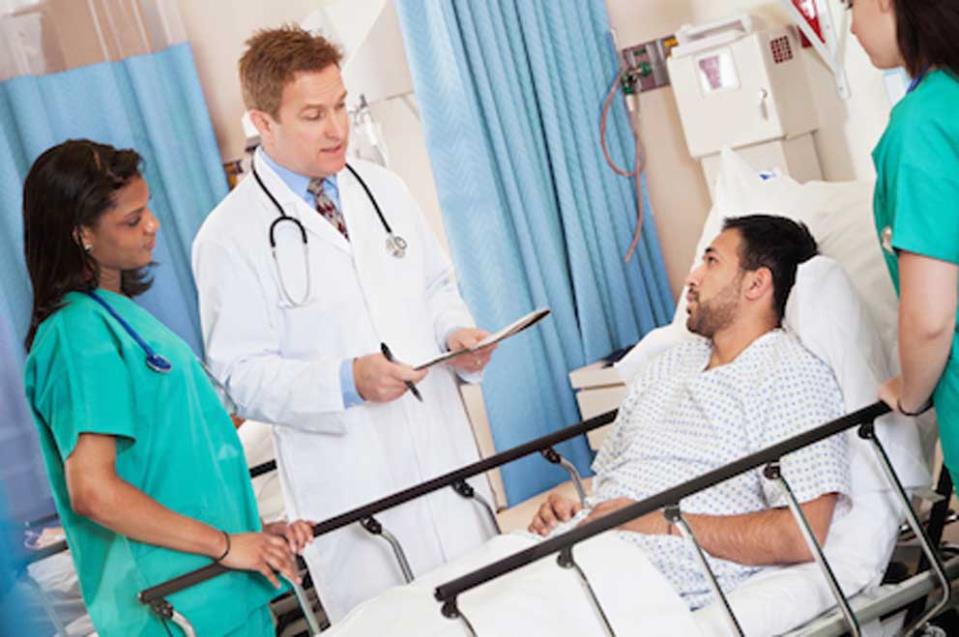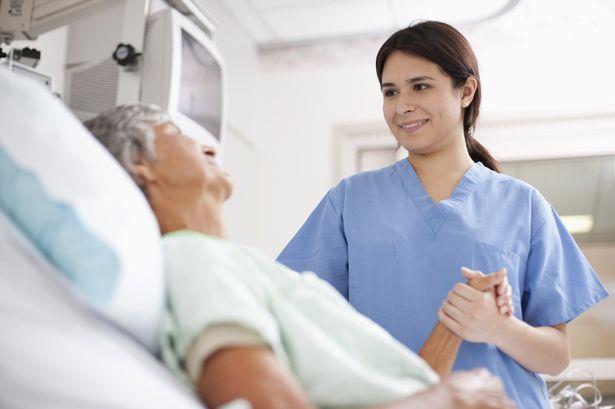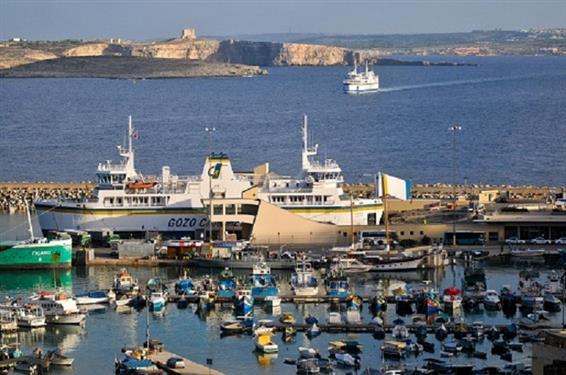Professor Mark Brincat has told The Malta Independent on Sunday that an iconic institution like Barts and The London School of Medicine and Dentistry will generate jobs and help put Gozo on the map more so than ever.
"I am saddened by the lack of realisation regarding the dearth of opportunities for Gozitans when it comes to getting a substantive meaningful job in Gozo." The project would, he said, be the beginning of a reversal in job opportunities in Gozo.
Prof Brincat studied at King's College University of London, subsequently undertaking his postgraduate studies there. He is the Director of the Health Department's Obstetrics and Gynaecology Department and is also a Director of Women's Health on the Vitals Global Healthcare (VGH) medical board - a role that is part-time. Since the launch of its website just over three weeks ago, Barts has so far heard from 1,093 students who have expressed an interest in studying in Gozo, he said.

He explained that he had played an important role in attracting Barts to Malta, to the extent of sending the original letters once he was given the green light to proceed in helping to identify a suitable school. He has worked on the project ever since.
"Malta needed the next major leap in patient care and medical education. This is where VGH, with its Harvard Partners PHI - the Harvard Private arm - and Barts came in."
When asked about the contract, Prof. Brincat said that the whole contract side of things regarding the Maltese government and VGH is not in his remit and he expects those who drew it up to have done so competently. He stressed that the whole project is bigger than any one individual or individuals, and "certainly more important. It should be judged on what it delivers."
When asked about the involvement of Minister Konrad Mizzi, given that he was mentioned in the Panama Papers controversy, Prof. Brincat said his brief was in clinical medicine and the wish to see the project come to fruition "for the sake of Maltese patients and Maltese medicine. Everybody has worked hard and is accountable for his role. Being accountable could also mean getting praise, not necessarily criticism. Accountability is not necessarily a threat. The contract as such therefore interests me only peripherally in so far as it provides the necessary tools to work with, and I have not seen it. Those responsible for drawing it up were entrusted to do so." He described the project as exciting and expressed his interest in seeing that the project delivers.

"I appreciate the enormous amount of work done by Malta Enterprise on this project. At the end of the day, it will be the deliverables from the project, which will be clear for all to see, not words. It would be a pity if this project was not allowed to proceed or was unnecessarily delayed."
Prof Brincat is also a Professor at the University of Malta Medical School, and President of the Malta College of Obstetrics and Gynaecology. He said that there is currently a problem with regard to the retention of post-graduate trainees. "We are training future doctors and specialists for a reason," he said, adding that there are currently not enough posts locally and thus postgraduates end up either moving to the UK or becoming frustrated.
This, he said, is where VGH could help by providing more beds for locals as well as for initiating large-number medical tourism, and generating more hospital beds in general. "This would translate into higher quality care for our patients and more suitable opportunities for postgraduates, while also creating other jobs."
Prof. Brincat also spoke about sub-specialisation in medical fields, explaining that unless there are enough cases within a sub-speciality, then that field cannot be properly developed." Some sub-specialities in Malta are currently not cost-effective to develop and patients are sent overseas. We would like to be able to offer these quantum leaps in care locally. Medicine is progressing, and there is a good interchange between doctors in Malta and those abroad, but due to limited financial and physical resources, we can only advance so far. Given this scenario, we must see how we can exploit our resources to the full." He was referring here to increasing beds and resources with expanding medical tourism, thus giving greater scope for local advances.
"The Malta Medical School, which performs really well, is restricted by the number of students it can take and its regulations limit the potential number of fee-paying students from abroad. Its primary mission, at any rate, is to educate local medical students and we can proudly say that we have done an excellent job over the centuries and continue to do so.
"In order for the next major leap to take place, one needs to look at various models abroad and see how they function. I always believed that one way for us here in Malta to achieve this next leap is for a second, high-quality medical school to open its doors."

Describing the VGH project, Prof. Brincat explained that the VGH project also includes the complete overhaul and redevelopment of the abandoned St Luke's hospital, a Grade 2 listed building. He said that, from both a medical as well as a conservationist view, "I cannot but welcome such an initiative. St Luke's deserves a comprehensive plan so that, just like a Phoenix, it will rise again from the ashes. It will be a comprehensive - not patchwork - restoration and once again, hospital beds and medical activity will take place. It will require enormous funds and a clear vision to carry out this project. The plans have been drawn up and I look forward to the delivery of this vision. The powers-that-be are convinced that it is achievable and so, it seems, are the partners. As a clinician interested in patient care, I look forward to the opportunity to work in these establishments once they are up and running, in their own way supporting the nation's medical service."
He said that the Gozo hospital complex will be increased to 450 beds with the old wards being completely refurbished and new wards added. He said that the plans that have been shown to him by the designers are tangible and appear well thought-out.
A second medical school will be an advantage
As for Barts, and whether competition could cause problems for the current University of Malta Medical School, Prof. Brincat said that, as a University of Malta Professor, he believes the second medical school will be an advantage to the current one, "as it will add to the prestige of my own university. There will be an interchange of modules and, at some stage, shared seminars, etc., as it is economical, and medical schools like to exchange ideas and teaching.

Prof Brincat said that VGH is helping fund the Barts venture. "Generally speaking, UK medical schools don't have development funds and are normally NHS hospital-based schools. VGH came up with a plan to make funds available to build a medical school. They have also engaged the private arm of Harvard Medical School, the Boston-based PHI. This augurs well for patient care in Malta and future generations of medical professionals and associated services.
"We have a situation that will be very difficult to repeat if it is lost. It is the Maltese - and importantly the Gozitan - economy that will ultimately benefit and, with that, the patients, professionals, students and population in general."
Regarding medical tourism, Prof. Brincat said that, to date, Malta has not been successful in attracting private patients in great numbers. "If you look at international medical tourism, Malta does not really feature. If you tried to market large-scale medical tourism in Malta, with just 40 to 80 available beds, would it happen? I don't think so. The sum total of private beds available in Malta is at the most around 150, and that includes the new St Thomas Hospital." He explained that more beds will help attract more private patients and even help the existing private hospitals.
"We are not talking about profiting from patients, we're talking about medical insurance payments and other such arrangements for those who choose to pay, whilst safeguarding our own NHS.
"As such, unless there are enough beds for private medical tourism, then this sector cannot expand."

He drew a comparison with the hotel industry, pointing out that had Malta not had enough hotel beds, then the tourism industry would never have taken off.
Prof. Brincat sees this project as an extension of the NHS to Maltese and Gozitans and as an extension of medical education. "This project will help ensure their sustainability. I am dedicated to both and would not be involved in anything that would not be beneficial to Maltese and Gozitan patients."
Asked about his experience with VGH, Prof. Brincat said that, in his dealings with them, "I have noted professionalism on the part of the many individuals to whom I have spoken, and the same when speaking to the Boston-based PHI. VGH has employed a number of local and locally-based non-Maltese people and other professionals have been visiting. Most of my dealings by far have been with Barts who, having been sceptical to begin with, are now very enthusiastic.
"Last week saw the start of Barts local advertising of jobs and their follow-up to the first group of over 200 local professionals who responded to their call to take up part-time honorary lecturer positions with Barts. In no way will these impinge on current commitments to the local school, since the pay will be exactly the same and the number of hours required will be spread over such a large number that individual hours will be small. But these individuals will be taught how to teach as well, and where improvements can be made to the current high standard, these will be passed on directly to our students.
"This VGH/PHI/BARTS project is too big, too complex and too important for the future of patient care and professional development to be derailed as a result of any individual gripe. It can be judged only by what it delivers - but it has to be given the chance to deliver."